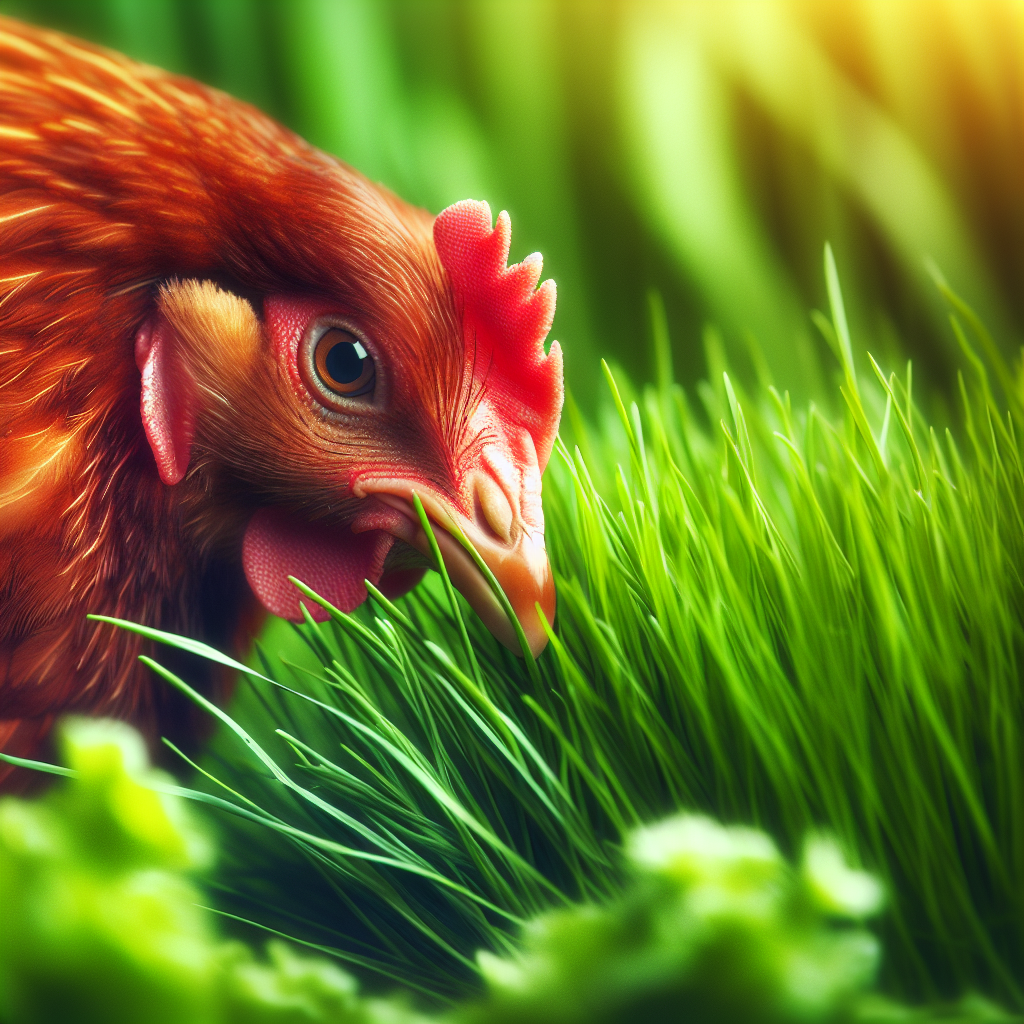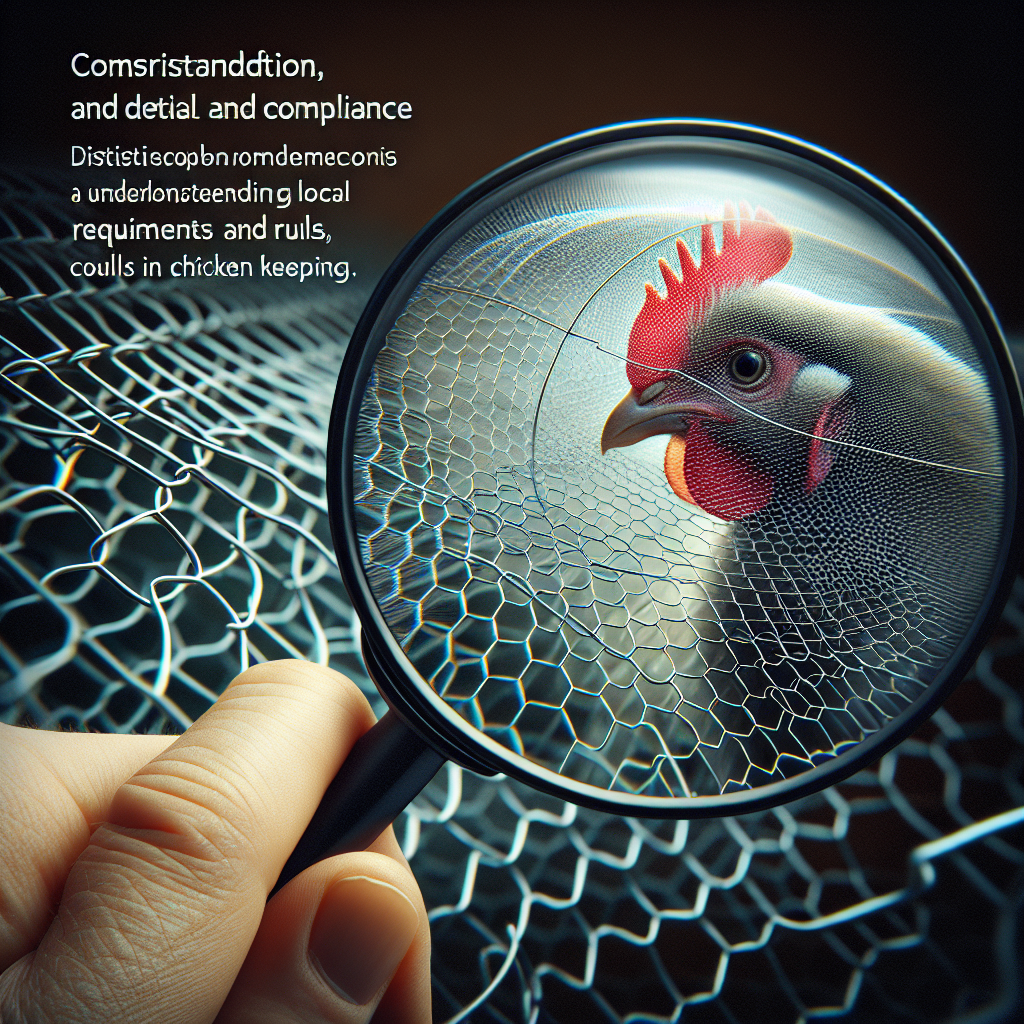So, you’ve just embarked on a new adventure and become a proud chicken owner. Congratulations! While raising chickens can be an exciting and rewarding experience, it’s important to be aware of the ethical considerations that come with it. From providing proper housing and nutrition to ensuring their health and well-being, this article will explore the ethical responsibilities that new chicken keepers should keep in mind. Let’s make sure your feathered friends lead a happy and fulfilling life while under your care.
Housing
Providing Adequate Space
When it comes to housing your chickens, providing them with adequate space is essential for their overall well-being. Chickens need enough room to roam and stretch their wings. A general rule of thumb is to provide at least 4 square feet per chicken inside the coop and at least 10 square feet per chicken in the run. Having enough space ensures that your chickens have enough room to move around freely and engage in their natural behaviors.
Ensuring Proper Ventilation
Proper ventilation is crucial for the health and comfort of your chickens. Good ventilation helps to control the moisture levels in the coop, preventing the buildup of ammonia and reducing the risk of respiratory issues. It also helps to regulate the temperature inside the coop, keeping your chickens cool in summer and preventing condensation in winter. Make sure your coop has openings for fresh air to circulate, while also providing protection from drafts and predators.
Maintaining Cleanliness
Maintaining a clean living environment for your chickens is not only important for their hygiene but also for preventing the spread of diseases. Regularly cleaning the coop and run, removing soiled bedding, and providing fresh bedding will help keep your chickens healthy and comfortable. Additionally, keeping their food and water containers clean and free of debris is vital to prevent bacterial contamination. Regular sanitation practices are an essential part of responsible chicken keeping.
Nutrition
Balanced Diet
Providing your chickens with a balanced diet is crucial for their health and well-being. A well-balanced diet should consist of a combination of commercial chicken feed, fresh fruits and vegetables, and access to forage. Chicken feed should be specifically formulated to meet the nutritional requirements of chickens at different stages of life. Supplementing with kitchen scraps can be a healthy addition to their diet, but it is important to avoid feeding them anything toxic or harmful.
Access to Fresh Water
Just like any living creature, chickens need access to fresh and clean water. Water is essential for proper digestion, egg production, and overall hydration. Make sure to provide a constant supply of fresh water for your chickens, keeping the containers clean and free from debris. During hot weather or freezing conditions, extra precautions should be taken to ensure that the water is not too hot or frozen.
Avoiding Overfeeding
Overfeeding chickens can lead to obesity, which can contribute to various health problems. It is important to feed your chickens the appropriate amount of food for their size and age. Following the feeding guidelines on the chicken feed package or consulting an expert can help you determine the right amount of food to provide. Remember, chickens will also forage for insects and grass, so take into consideration their natural behavior when determining their feeding routine.
Healthcare
Regular Veterinary Check-ups
Just like any other pet, chickens can benefit from regular veterinary check-ups. A poultry veterinarian can provide professional advice on how to maintain the health of your flock, identify any potential health issues, and administer necessary vaccinations. Regular check-ups can help catch any underlying health problems early on and prevent more serious conditions from developing.
Preventive Measures for Diseases
Preventing diseases is always better than treating them. Taking proactive measures can help minimize the risk of disease outbreaks in your flock. Good biosecurity practices, such as limiting contact with other poultry, quarantining new birds before introducing them to your existing flock, and keeping a clean and sanitized environment, are essential. Additionally, vaccination against common poultry diseases can be a preventive measure recommended by your veterinarian.
Appropriate Medications
In some cases, chickens may require medications to treat specific health conditions. It is important to consult with a poultry veterinarian before administering any medications to ensure proper dosage and usage. Some medications may require withdrawal periods before the eggs and meat from treated chickens can be consumed. Always follow the veterinarian’s instructions and guidelines to ensure the health and safety of your flock.
Predator Protection
Secure Coop and Run
Protecting your chickens from predators is crucial to their safety and well-being. Ensuring that the coop and run are secure is the first line of defense. Secure the coop with sturdy locks and hardware cloth to prevent predators from gaining access. Regularly check for any gaps or holes in the fencing and repair them promptly. Installing an apron or burying the fencing around the run can help prevent predators from digging underneath.
Installing Predators Deterrents
Installing predator deterrents can provide an additional layer of protection for your chickens. Motion-sensor lights, predator-proof latches on doors and windows, and electric fences are all effective deterrents. Some chicken keepers also utilize guard animals, such as dogs or even llamas, to help ward off potential predators. Understanding the predators in your area and taking appropriate measures will help keep your chickens safe.
Supervision and Surveillance
Regular supervision and surveillance are essential in keeping an eye on your chickens and identifying any potential threats. Keep an eye out for any signs of predator activity, such as tracks, droppings, or disturbances around the coop and run. Installing security cameras or motion-activated surveillance systems can provide added peace of mind and assist in monitoring your chickens, especially when you are not able to be present.
Behavioral Needs
Promoting Natural Behaviors
Chickens have natural behaviors that are important for their overall well-being. Allowing chickens to engage in their natural behaviors, such as scratching the ground, dust bathing, perching, and foraging for insects, is vital for their mental and physical health. Providing them with the space and environment to express these behaviors will help create a happy and stress-free flock.
Providing Environmental Enrichment
Environmental enrichment is crucial for keeping chickens mentally stimulated and engaged. This can be achieved by providing them with various enrichments such as perches of different heights, dust bathing areas, and objects to peck and explore. Additionally, introducing novel objects and foods can provide mental stimulation and prevent boredom. Simple additions like hanging cabbages or scattering treats in the run can make a big difference in keeping your chickens entertained.
Social Interaction
Introducing Chickens Properly
When introducing new chickens to an existing flock or introducing chicks to adult chickens, it is important to do so gradually and carefully. Chickens establish a pecking order, which can sometimes lead to aggression and bullying. To minimize conflicts, introduce new chickens in a separate but adjacent space to allow them to see and interact with each other without direct contact. This gradual introduction will help establish a more harmonious and balanced flock dynamic.
Understanding Pecking Order
Understanding the pecking order is essential when keeping chickens. The pecking order determines the social hierarchy within the flock, with more dominant chickens asserting their authority over less dominant ones. It is important to allow chickens to establish the pecking order naturally, stepping in only when aggression becomes excessive or detrimental to the well-being of the flock. Providing plenty of space, resources, and distractions can help minimize conflicts and maintain a peaceful flock.
Avoiding Isolation
Chickens are social creatures and thrive when they have interaction with their flockmates. Avoiding isolating chickens, either by keeping them alone or limiting their social interactions, is important for their mental well-being. If you are keeping a small flock, consider having at least three or more chickens to ensure they have companionship. If possible, provide opportunities for free-ranging or supervised outdoor time where they can interact with each other and engage in natural social behaviors.
Ethical Sourcing
Responsible Breeding Practices
When acquiring chickens, it is important to choose breeders that prioritize responsible breeding practices. Responsible breeders focus on maintaining breed standards, promoting genetic diversity, and ensuring the health and well-being of their chickens. They prioritize the welfare of their birds and avoid harmful practices, such as inbreeding or excessive selective breeding for aesthetics. Supporting responsible breeders helps promote the long-term health and viability of chicken breeds.
Avoiding Supporting Factory Farming
Factory farming practices often prioritize profit over animal welfare, subjecting chickens to cramped and unsanitary conditions. As an ethical chicken keeper, it is important to avoid supporting these practices. Instead, choose to source your chickens from small-scale and sustainable farmers who prioritize the well-being and humane treatment of their birds. By supporting ethical sourcing, you help foster a better future for chickens and promote more sustainable farming practices.
Rescue and Adoption
Consider rescuing or adopting chickens instead of buying them from breeders or hatcheries. There are often local animal shelters or rescue organizations that have chickens in need of a loving home. By rescuing or adopting, not only are you providing a second chance for chickens in need, but you are also contributing to reducing the demand for breeding and production of chickens. It is a compassionate choice that benefits both the individual chickens and the greater chicken community.
Proper Disposal
Humane Euthanasia
As chicken keepers, it is our responsibility to ensure that our chickens live a good quality of life. However, there may come a time when a chicken’s quality of life is compromised due to old age, illness, or injury. In such cases, it is important to consider humane euthanasia as a last resort to prevent any unnecessary suffering. Seek guidance from a veterinarian or experienced chicken keeper to ensure that euthanasia is carried out in the most humane and compassionate manner possible.
Environmentally-friendly Disposal
Proper disposal of chicken waste and deceased chickens is essential for environmental sustainability and biosecurity. Composting chicken waste can be a great way to recycle nutrients and create rich soil for your garden. When disposing of deceased chickens, it is important to follow local regulations. Options such as burying, cremation, or contacting a rendering service can provide environmentally-friendly and responsible solutions.
Long-term Commitment
Considering Lifespan
Before embarking on the journey of chicken keeping, it is important to consider the long-term commitment. Chickens can live for up to 10 years or more, depending on their breed and individual health. Ensure that you are ready and willing to commit to caring for them throughout their lifespan, including providing necessary medical care, attention, and a suitable living environment. Understanding the long-term commitment will help ensure that the chickens you bring into your life are given the care and attention they need and deserve.
Planning for Care during Vacations
Just like any other pet, chickens require care and attention even when you are away on vacation. Planning for their care ahead of time is crucial to ensure their wellbeing. Options include enlisting the help of a trusted friend, neighbor, or family member to look after them, or engaging a professional pet sitter who is experienced in chicken care. Providing detailed instructions and ensuring that the care provider has access to necessary supplies will help make the transition smoother and ensure continuity of care.
Rehoming Responsibly
In certain circumstances, you may find that you are no longer able to keep chickens due to changes in living arrangements, personal circumstances, or other reasons. If rehoming becomes necessary, it is important to do so responsibly. Seek out reputable individuals or organizations that are experienced in chicken care and have a genuine interest in providing a good home for your chickens. Take the time to properly screen potential adopters and ensure that your chickens will be well-cared for in their new environment.
Education and Research
Proper Knowledge and Training
Education and ongoing learning are essential for responsible chicken keeping. Before bringing chickens into your life, take the time to learn about their care requirements, proper handling techniques, and basic first aid. There are numerous resources available, including books, online forums, and local workshops, that can provide valuable knowledge. Additionally, consider joining local poultry associations or clubs to connect with experienced chicken keepers who can offer guidance and support.
Continuous Learning
Chicken keeping is a journey of continuous learning and growth. As a responsible chicken keeper, it is important to stay informed about the latest research, best practices, and advancements in chicken welfare. Stay engaged with the chicken-keeping community through forums, workshops, and conferences to deepen your knowledge and share experiences. By staying informed and adapting your practices accordingly, you can provide the best possible care for your chickens.
Engaging with the Chicken-keeping Community
Engaging with the chicken-keeping community can be an enriching experience for both you and your chickens. Joining poultry associations, attending local events, or participating in online forums can help you connect with fellow chicken keepers and share knowledge and experiences. The chicken-keeping community is often supportive and passionate about promoting responsible chicken care. By engaging with the community, you can build friendships, gain valuable insights, and contribute to the well-being of chickens on a larger scale.




